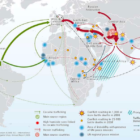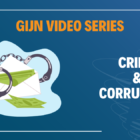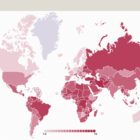Organized Crime Guide
Investigating Mafia States and Kleptocracies: A Q&A with OCCRP’s Drew Sullivan
|
GIJN’s forthcoming guide to investigating organized crime features a chapter on what we call mafia states – countries that essentially operate as a criminal cartel and run the affairs of state much as a crime syndicate runs rackets. To explore this topic, we asked GIJN’s executive director David Kaplan to interview Drew Sullivan, co-founder and editor of the Organized Crime and Corruption Reporting Project.



